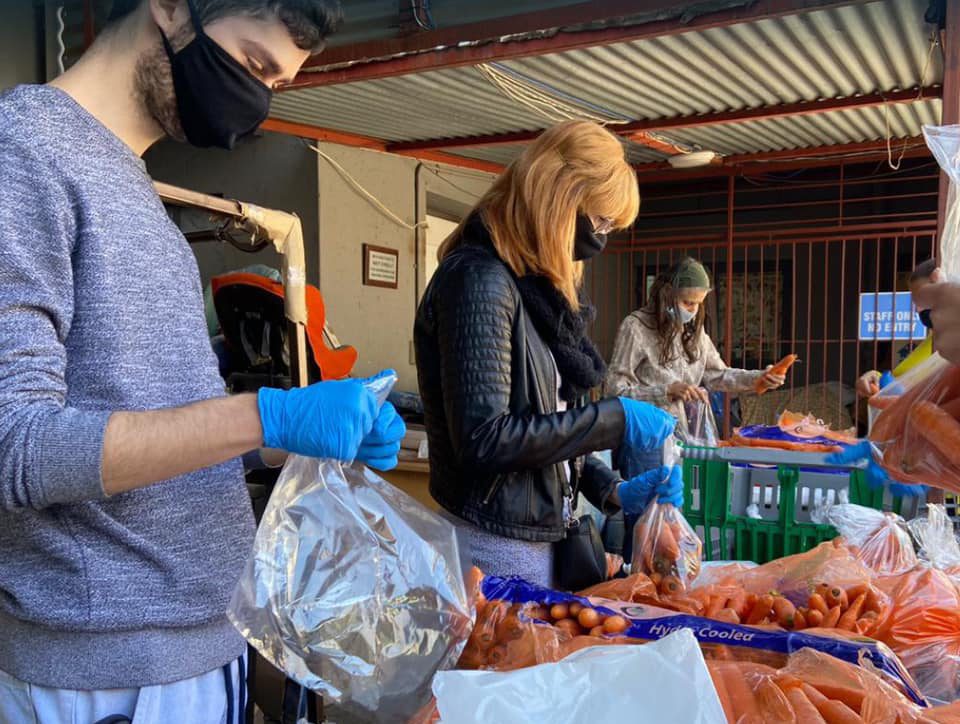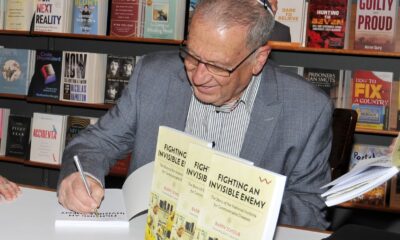
Featured Item

COVID-19 leaves destitute choosing between food and fuel
“COVID-19 has knocked me right off my feet. I’ve lost my job and my income along with it. R100 has become a lot for me, and I always ask myself: what do I need to spend it on the most?”
This is the question 55-year-old Martha Benson* has had to ask herself daily since the onset of COVID-19 in March this year. Confined to a one-room cottage with her 27-year-old son, she no longer holds a job and struggles daily to put food on the table. Were it not for the weekly meal hamper she receives, she wouldn’t know where to go for her next meal.
Benson is one of hundreds of members of our community who have been devastated financially by the effects of the pandemic. While few of us have remained unscathed, too many have lost jobs and are left with no choice but to turn to organisations like Yad Aharon & Michael to help them to feed their families.
Without the food parcels provided weekly, most of these families wouldn’t survive. There has been a substantial increase in the number of applications for food assistance as a result of COVID-19, says the managing director of Yad Aharon & Michael, Alice Friedman.
“For Pesach, we had 655 families on our weekly list, plus an additional 20 families who manage [with difficulty] to put food on their table,” she says. “For Rosh Hashanah, we packed a record 700 double food hampers, and we currently assist 687 families.
“Until the devastation of COVID-19, ‘middle class’ families were never considered eligible for our assistance, but this has had to change.
“Families whose businesses closed and the thousands of retrenched people are suddenly unable to meet basic expenses which are much higher than those of our regular recipients. They find their totally unexpected situation, albeit temporary, extremely hard to deal with and accept,” says Friedman. “The humbling message is that no one is immune.”
There is a large spectrum of people affected, ranging from those who were financially vulnerable to begin with to those who have experienced a sudden change of circumstance. Benson falls into the former category.
“I’ve had a tough life,” she told the SA Jewish Report last week. “I was raised by a single mother, my ex-husband had an affair, and I’ve been raising my son alone without much support. In spite of working two jobs at one time, I couldn’t always afford to care for my son, and he was taken to a home where he was abused.
“It’s been emotionally devastating and traumatic. I’m now sitting with a grown-up son with emotional issues who is totally reliant on me financially and emotionally.”
Benson’s son didn’t get his matric, and was still trying to complete his studies earlier this year when COVID-19 arrived, an expense his mother was already struggling to afford on limited grant payments and a meagre salary.
“I earned almost R2 500 if I was lucky helping my mother care for an elderly person in a retirement home,” she says. “That stopped suddenly in March, and I found myself with no income at all. I was stunned.
“My first thought was, how will I put my son through school? Will that ever happen?
“Without a job, I’m left sitting at home every day with my son,” she says. “His aggression is getting worse because of the stress, and he sometimes attacks me. Sometimes we have electricity and sometimes we just don’t. I’ve occasionally begged my ex-husband for some help, but it’s so demoralising. COVID-19 has made a difficult situation even worse.”
Simone Jacobs* was doing fine financially until she lost her job when COVID-19 hit. Now, she and her family of five don’t have enough money to look after themselves.
“I was working in a retail store, and it got scary when COVID-19 was coming and stores started closing for health reasons,” says Jacobs. “When we were told to close the shop under lockdown, I was nervous and didn’t know what would come next.
“I came home, and was loving the first weeks of lockdown – it was like a holiday. Reality set in when my hourly salary was suddenly cut and I had to start drawing from UIF [the Unemployment Insurance Fund]. It was scary.”
Jacobs was retrenched shortly thereafter.
“That was that,” she says. “No thank you or goodbye. It was a shock. My husband runs his own business, and he was forced to close as well. My income used to contribute quite a bit to our home, and though we’d always been okay financially, the sudden lack of a second income made a huge difference.”
Rachel Ellis* has also experienced considerable hardship since the onset of the pandemic when her husband’s business had to close, leaving the couple and their daughter with little support.
“My husband works in diamonds, and before lockdown things were starting to pick up a little,” says Ellis. “People from overseas would come, and he’d make some sales. Lockdown came, closed the airports, and shut him down completely.
“I used to add a little to our income by working for a local kollel. Now there’s nothing at all – no income, no nothing. My husband still goes to work and tries to earn a little something, and my daughter works a bit as well.
“We are relying on other people to help us.”
Like Benson and Jacobs, Ellis survives on a weekly meal hamper that keeps them going.
Says Jacobs, “When friends asked if they could put me on Yad Aharon & Michael’s list, I initially said no because there are people out there who have it much worse.” Little did she realise how it would keep them afloat.
“Now I don’t know where we would be without it.”
Says Benson, “I would have been finished a long time ago if it weren’t for the help. I never thought I’d be in this position.
“When I was first married, I had it all – my own Diners Club card, a credit card, and my husband drove a BMW. Now I’m questioning whether to spend R100 on groceries or petrol.
“We’ve all taken a knock, but I don’t think everyone really understands the situation. You don’t realise what it’s really like until it happens to you.”
*All names were changed to protect the identity of those quoted.










